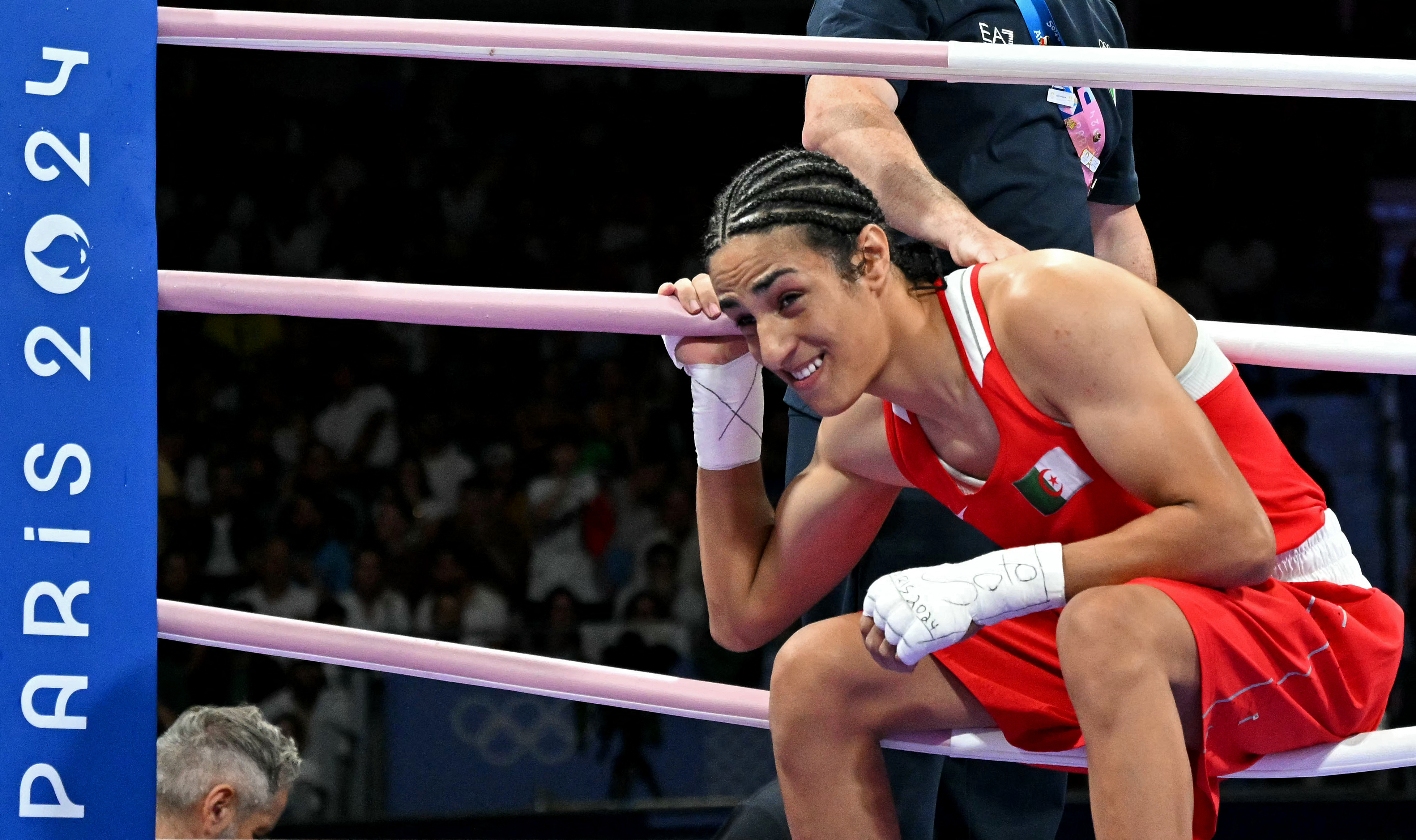What to Know
- Two female boxers who were disqualified from the 2023 world championship after being judged to have failed gender eligibility tests were cleared to fight at the Olympic Games in Paris, and it sparked online outrage from conservatives and anti-LGBTQ+ commentators
- International Boxing Association Russian president, Umar Kremlev, claimed that DNA test results showed the two athletes have XY chromosomes, but the results were never published
- IOC said it stands by the athletes and their eligibility to compete
Political outrage surrounding two women competing in boxing at the Paris Olympics stems from "a lot of misinformation," an International Olympics Committee spokesperson said Friday.
It all began when the IOC said Algerian boxer Imane Khelif and Lin Yu-ting of Taiwan were allowed to compete at the 2024 Olympics after the International Boxing Association (IBA) disqualified them for unspecified gender eligibility tests from the 2023 world championships --- despite them having already competed.
Both boxers have long been competing as women and neither athlete identifies as transgender.
Here are some questions viewers have after conservatives like former U.S. President Donald Trump, Italian Premier Giorgia Meloni and other right-wing commentators sparked an online outcry that men shouldn't be allowed to compete with women:
Does Imane Khelif have XY chromosomes?
Get Tri-state area news delivered to your inbox. Sign up for NBC New York's News Headlines newsletter.
IBA Russian president, Umar Kremlev, claimed that DNA test results showed the two athletes have XY chromosomes, citing it as the reason they were disqualified in the world championships. The IBA also cited high levels of testosterone in Khelif's system.
However, the test results were never published and Khelif has never disclosed her biological markers, calling the decision a "big conspiracy." The disqualification came after Khelif defeated Russian boxer Azalia Amineva in the 2023 tournament. IBA said it stripped Lin of a bronze medal because it claimed she failed to meet unspecified eligibility requirements in a biochemical test.
The IOC has long criticized the IBA and its governance of the sport and eventually banned the Russian-run organization in 2019. In a statement Friday, the IOC said it stands by the athletes and their eligibility to compete, noting that the boxing association's own documents say the decision was made unilaterally by the IBA's secretary general.
Those documents also say the IBA went on to resolve at a meeting that it should “establish a clear procedure on gender testing” after it had already disqualified the two fighters.
What is DSD and Swyer syndrome?
DSD stands for differences in sexual development. It can involve genes, hormones and reproductive organs, but it has nothing to do with gender identity. It's false to conflate transgender people with people who were born with DSD, said GLAAD, the world’s largest lesbian, gay, bisexual, transgender and queer media advocacy organization.
Some people with DSDs are raised as female but may have sex chromosomes other than XX, or elevated testosterone levels, according to the NIH.
People with Swyer syndrome, according to the National Library of Medicine, have one X chromosome and one Y chromosome in each cell (typically found in boys and men), but they have female reproductive structures. Again, it's not known whether either of the boxers has these genetic variations.
They have both been competing as women from the start.
How did Khelif and Lin qualify for the Olympics?
The IBA still holds world championships but it did not run qualifying events for the 2024 Paris Games.
Qualification for Paris 2024 took place across three phases: continental qualification tournament, world qualification tournament 1 and world qualification tournament 2, according to NBC Olympics.
How does the Olympics test for gender qualification?
Due to the banishment of the IBA, the IOC used rules from 2016 in determining boxers’ gender eligibility.
It leaves regulations up to each sport's international governing body because "they know their sport and their discipline the best," IOC spokesman Mark Adams told reporters. "I hope we all agree that we're not calling for people to go back to the days of sex testing which was a terrible, terrible thing to do. This involves real people and we're talking about real people's lives here."
The history of sex testing at the Olympics is decades-long and practices such as invasive physical examination have been exposed as abusive. The IOC in recent years updated its policy to be more inclusive and doesn't require athletes to undergo "medically unnecessary" procedures or treatment, NBC News reported.
Several Olympic sports’ governing bodies have also updated their gender rules over the past three years, including World Aquatics, World Athletics and the International Cycling Union. The governing body for track and field also last year tightened rules on athletes with differences in sex development.
Can women have high levels of testosterone?
Simply put, yes, in the same way that many men can have low levels of testosterone. However, women with higher levels of testosterone have faced more criticism and questions about their gender.
Many of the rules set by governing bodies for participation in women's competitions include testing of the athlete's testosterone levels, but it's not a perfect test, Adams said as he addressed the boxing controversy.
While scientists and the IOC agree that testosterone is "an important factor shaping performance in elite athletes in certain sports, events and disciplines," it doesn't necessarily predict the performance of an individual athlete.
"Many women can have testosterone which will be called 'male levels' and still be women and still compete as women. This idea that you do one test for testosterone and that sorts everything out? Not the case I'm afraid," Adams said.
The IOC spokesman told reporters that there has been “a lot of misinformation around on social media particularly, which is damaging.”




